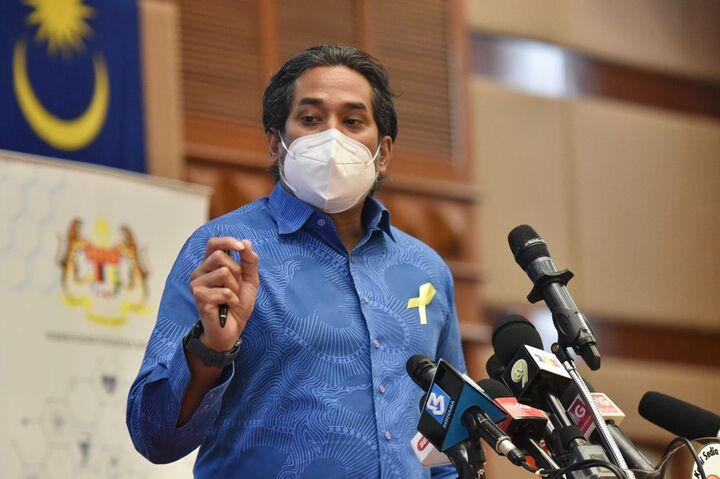KUALA LUMPUR, Dec 27 – There is limited scientific evidence to show that a booster Covid-19 vaccine dose in addition to the primary series will be sufficient in the long run to protect against newer coronavirus variants like Omicron, Khairy Jamaluddin said.
The health minister, in a written response in Parliament on December 23, said scientists are still trying to investigate and understand the nature of Covid-19 variants, such as whether they cause more or less severe illness than other variants, and whether the current vaccines are effective against variants like Omicron.
“Therefore, it is difficult to give any assurance or recommendation on the need for additional Covid-19 vaccine doses after the booster dose is given as the current scientific evidence is limited and dynamic,” Khairy said.
He was responding to Senator Muhammad Zahid Md Arip, who asked if the Ministry of Health (MOH) can assure that no further Covid-19 vaccine doses are needed to strengthen the body’s immune system after a booster shot is given.
The senator also asked about measures that the MOH has taken to educate the public to readily accept their booster appointments, given the less-than-satisfying uptake rate currently.
Khairy said the MOH has always been committed to educating the public on Covid-19 booster shots by using various social media platforms and conventional media, including talk show appearances on television by health experts, public service announcements (PSAs), and crawlers on TV broadcasts on television and radio stations.
Health infographics and information on frequently asked questions are also posted on MOH’s official social media channels as well as on MyHealth’s social media page.
Khairy said the MOH has also been educating the public on safety issues about booster shots, as well as their effectiveness and side effects to ensure that the targeted groups get accurate information on the implications of the booster jab.
He said the implementation of booster shots under PICK is based on scientific evidence and follows strict procedures, including getting approval from regulatory bodies like the National Pharmaceutical Regulatory Agency (NPRA).
Scientific evidence is obtained through the results of studies, real-world data and also the opinion of a panel of medical experts both locally and abroad, Khairy said.
Currently, about 23 per cent of adults aged 18 and above in Malaysia have been boosted against Covid-19, including 53 per cent in Sarawak and 30 per cent in the Klang Valley, Melaka, and Negeri Sembilan. Coverage of third doses is below 30 per cent of the adult population in other states.
Khairy told a press conference Saturday that he would announce this week a shorter interval for boosters after the second dose. Currently, AstraZeneca and Pfizer vaccine recipients can only get a third dose six months after their second.
Singapore now considers three doses of Sinovac’s inactivated vaccine as primary vaccination, requiring Sinovac recipients to get their third dose by December 31 to maintain their fully vaccinated status from next year.
Malaysia, similarly, requires adults double-vaccinated with Sinovac and senior citizens aged 60 years and older to get a third vaccine dose by February to retain their fully vaccinated status on MySejahtera. MOH recommends Pfizer boosters and AstraZeneca as an alternative for all, regardless of the type of vaccine initially taken.
BBC recently reported that a government panel of experts in Israel has recommended a fourth Covid-19 vaccine dose for everyone aged 60 years and older, health care workers, and immunocompromised individuals, at least four months after their third jab.








